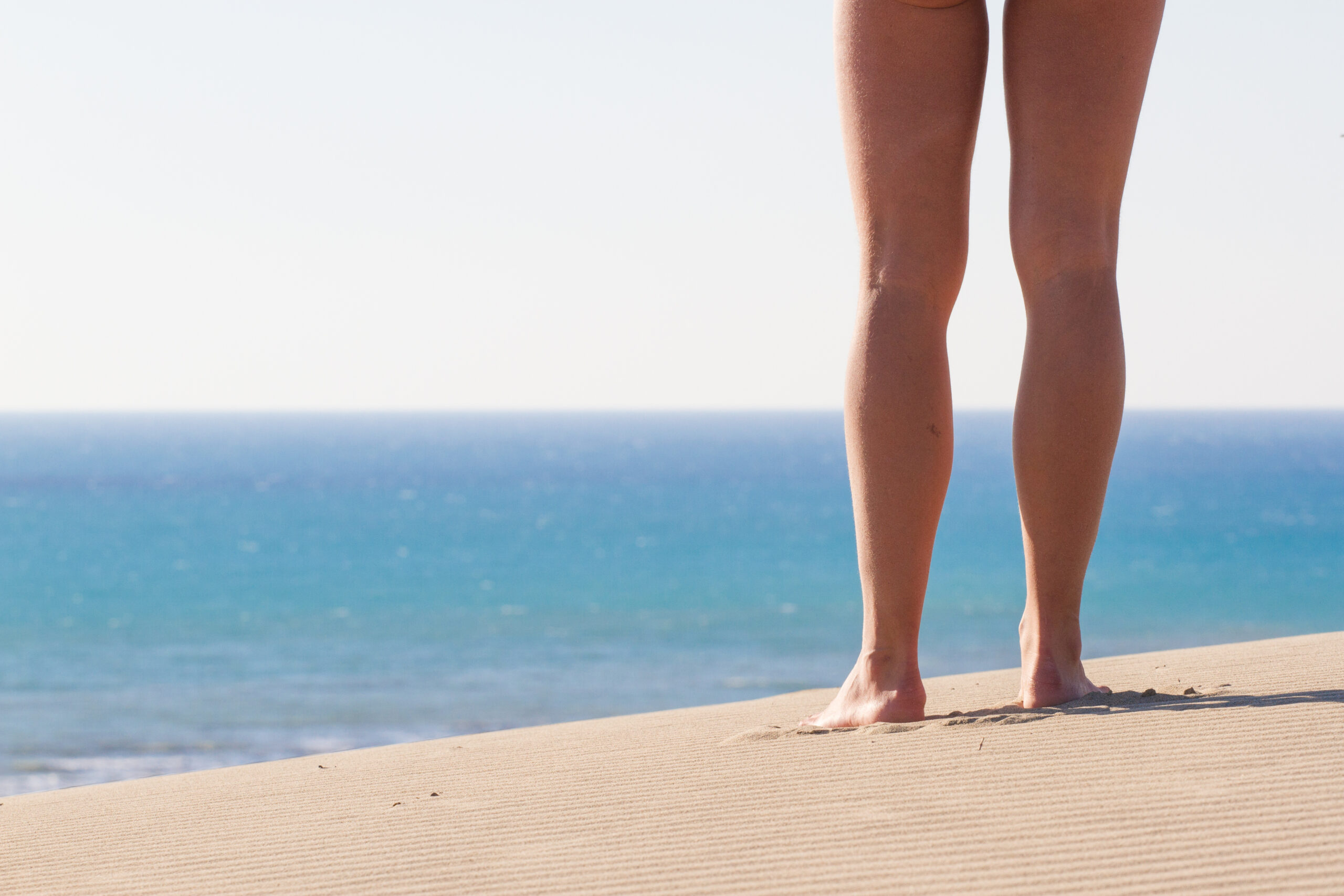Not sure whether your pain points to a bulging disc vs herniated disc? You’re not alone. These two spine conditions share overlapping disc injury symptoms, but the cause, imaging findings, and best next steps can…
You may notice increased acute or chronic pain in your lower back as you age, especially when doing physical activity like walking. If you have flat feet, that could be what’s causing the pain. Learning what flat feet are and how they may be related to your back pain can get you one step closer to alleviating it.
Don’t keep living with your back pain. Instead, contact a spinal health doctor to discuss your lower back pain. We can thoroughly examine you, conduct tests, and direct you in the right direction for lower back pain relief.
What Are Flat Feet?
When you stand with the pads of the feet pressed into the ground, you should see a visible arch inside the foot. When an arch is not visible, this is referred to as having flat feet. Everyone is born with flat feet, but arches are usually formed by age 6. However, about one or two out of 10 children grow into adulthood with flat feet. There are different types of flat feet, such as:
- Flexible
- Rigid
- Fallen arches acquired during adulthood
The difference between flexible and rigid flat feet is whether you can see arches with or without weight on the feet. For example, flexible flat feet will have visible arches when no weight is put on the feet but won’t be visible when standing. On the other hand, rigid flat feet are a condition in which arches are not seen at all, making it difficult to flex or move feet up, down, or from side to side.
Fallen arches happen when an arch drops or collapses because of possible inflammation or a tear in the leg tendon that supports the arch. This condition can also cause the foot to turn outward.
How Can Flat Feet Cause Back Pain?
When the feet are normally structured, regular joint movement is expected when bearing weight on the feet while doing an activity such as walking. However, if you have flat feet, this may cause your foot to collapse inward with each step creating an unnatural gait. Therefore, stress is placed on the ankles, knees, hips, and lower back to compensate for this abnormal joint movement.
In addition, if you have an arch in your foot, this helps the feet absorb shock from physical activity, and the body’s weight is evenly distributed around the surface of the foot. With flat feet, the foot does not absorb the body’s weight effectively and creates an excessive force on the joints of the legs, the hips, and the spine.
Tests That Confirm Your Back Pain Could Be From Flat Feet
In a public survey during a festival to determine a correlation between flat feet and lower back pain, the survey found that among the participants, 65.9% who had flat feet complained of acute and chronic lower back pain, while only 32.8% of people who had arched feet complained of lower back pain. These findings mean that over half of the people with flat feet will most likely experience lower back pain, especially if they’re over the age of 25 and overweight.
Joint pain and muscle strain are the most common causes of lower back pain stemming from flat feet. Therefore, a doctor can conduct a physical and mobility examination for confirmation. However, long-term spinal misalignment and osteoarthritis of the spine can also be present because of the stresses and forces that the spine receives over time in flat-footed patients. X-rays, CT scans, or MRIs can determine if either condition is present.
The Florida Back Pain Experts at Orthopedic & Laser Spine Surgery Can Help Preserve Your Spinal Health
Back pain and progressive spinal degeneration can keep you from enjoying physical activities and diminish your quality of life. If you suspect you are suffering from back pain because of flat feet, see the Orthopedic & Laser Spine Surgery spinal health experts. We can conduct consultations, examinations, and an MRI review for flat feet-related back pain.
The doctors at our offices specialize in spinal health and back pain. We can advise you on the best course of action to relieve your back pain and preserve your spinal health. If you’re experiencing acute or chronic lower back pain, call us at (855) 853-6542 or complete our contact form for a consultation.

